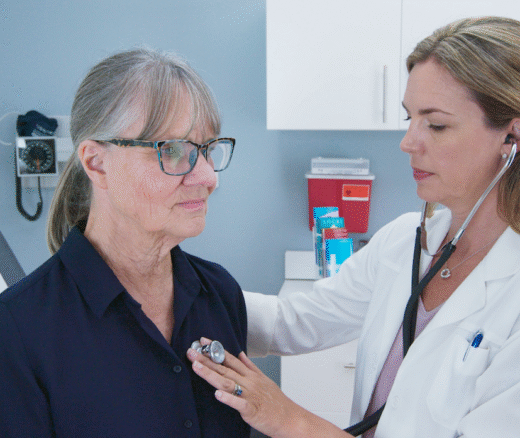
ER Violence Rises – Nurses and Doctors Say These Changes Could Prevent Assaults
LDI Fellows Call for Real-Time De-Escalation Teams and Safer Staffing Ratios to Prevent Chaos Before it Erupts
The National Institutes of Health (NIH) Office of Behavioral and Social Sciences Research monthly newsletter, the OBSSR Connector, spotlights a new Penn study that used “nudge” methods to change radiation oncology palliative care.

The NIH newsletter said that the study, funded by the National Cancer Institute (NCI), shows how NCI and Penn are “making strides in reducing unnecessary medical procedures.”
Published in June in JAMA Oncology online, the study led by Penn Medicine’s Justin Bekelman and Mitesh Patel, is entitled “Effect of Introducing a Default Order in the Electronic Medical Record on Unnecessary Daily Imaging During Palliative Radiotherapy for Adults with Cancer.”
Bekelman, MD, is the Director of the Penn Center for Cancer Care Innovation at Penn Medicine’s Abramson Cancer Center and an LDI Senior Fellow.
Patel, MD, MBA is the Director of the Penn Medicine Nudge Unit, the world’s first behavioral sciences team embedded within a health system, and an LDI Senior Fellow. LDI Senior Fellow Dylan Small, PhD, of the Wharton School, was statistician on the project.
The NIH article notes that behavioral economics’ default strategies have previously demonstrated the ability to alter physician behavior but largely focused more on doing so in a way designed to increase the use of high value care — rather than the de-adoption of unnecessary care.
The default medical records “nudge” options tested by the work reduced daily imaging from 68% of the treatment regimens to 32% among advanced cancer patients and had “a significant effect on medical practice and physician behavior, decreasing the use of unnecessary medical procedures and potentially saving healthcare costs.”

LDI Fellows Call for Real-Time De-Escalation Teams and Safer Staffing Ratios to Prevent Chaos Before it Erupts

Penn LDI Senior Fellow Yong Chen Is an MPI in the 10-Institution NIA Undertaking

Despite Streamlined Processes, FDA’s Role in Rare-Disease Drug Development Draws Continued Scrutiny

LDI Fellows Used Medicaid Data to Identify Individuals at Highest Risk for Cocaine- and Methamphetamine-Related Overdoses, Paving the Way for Targeted Prevention

More Focused and Comprehensive Large Language Model Chatbots Envisioned

Medicare Advantage Modestly Cut Black–White Disparities in Chronic Disease Prevention Compared to Traditional Medicare, but Care Gaps Remain for Latinx Populations

How Threatened Reproductive Rights Pushed More Pennsylvanians Toward Sterilization

Billing Codes That Flag Food, Job, or Housing Insecurity in Medical Records are Underused for the Sickest Medicare Patients